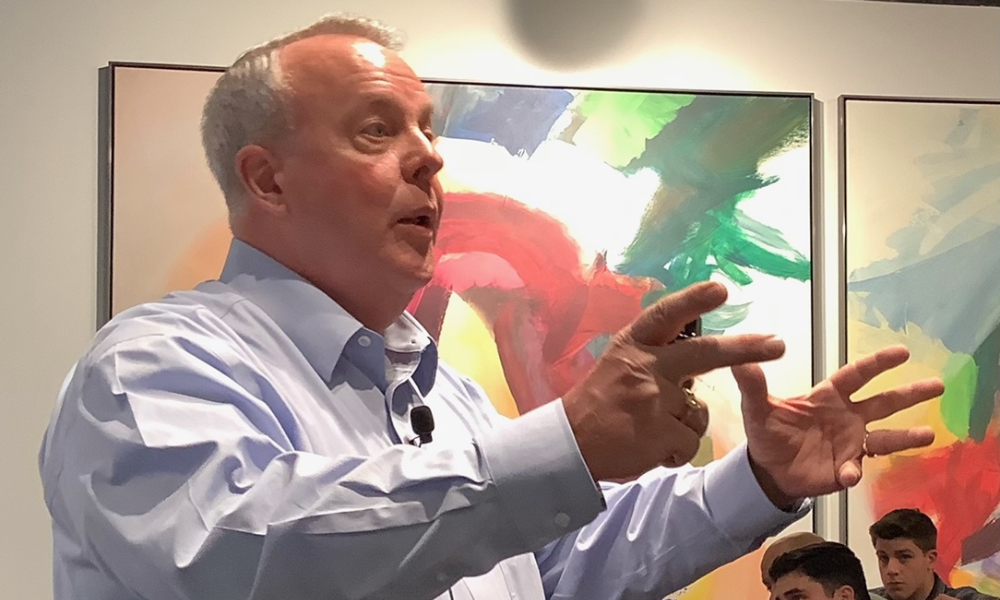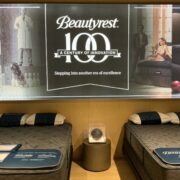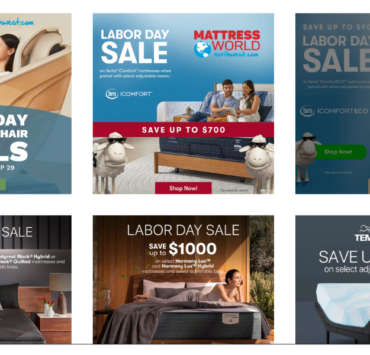Now that the all-important Labor Day holiday is upon us, this is a good time to talk about a key to growing retail sales: better salesmanship. Our instructor for this quick primer on better selling is someone with the wisdom of a wise uncle. In fact, that is his name: Uncle Muenkel.
Well, his real name is Bob Muenkel, but he uses the catchy Uncle Muenkel moniker for his sales training and education company, from which he shares insights he’s gleaned from more than 35 years in the mattress business with a number of leading legacy and digitally native brands. Full-length training courses are available on his website.
At the recent Las Vegas Market, he gave a roomful of attendees at a Specialty Sleep Association seminar a master class in overcoming objections, a critical step in the selling process. “How to Turn No Into Yes” was the title of his well-attended session.
The “no” that a retail sales associate receives from a customer as his or her sales presentation unfolds represents a moment of truth. A savvy RSA can turn that moment into an opportunity to build confidence with the customer, Muenkel explains. “The Three F’s” unlock that opportunity. They are “feel,” “felt” and “found.”
Here’s how the RSA should use those words:
- “I understand exactly how you feel.” This demonstrates empathy with the customer.
- “I work with clients every day and some have felt the same way.” This tells the customer “you are not alone.”
- “And what I’ve found is that it’s helpful to review a few things to help you address your objection. OK?” And this tells the customer that you are going to help them.
As RSAs move through this process, it is helpful to develop a consistent approach. “When words matter,” Muenkel notes, “you will find a script.” That’s not an unusual step; scripts are everywhere in our daily lives, from songs to movies to our daily prayers. Practice and rehearsal are vital for RSAs to personalize and master the scripts they use.
“When you get good at this, you will close with a kiss and not a sword,” Muenkel says. “Scripts work, but you must take the time and effort to develop them and make them sound like they come from your heart.”
Most of the objections that RSAs encounter are really “smokescreens” relating to the customer’s fears of either buying the wrong product or paying too much for it, Muenkel says. So the RSA must build confidence in himself or herself and in the products he or she is selling. And that is accomplished by selling your company, selling yourself, selling your products or services, and selling a sense of urgency, he adds.
It is important to avoid confusion. That means speaking the customer’s language, and avoiding complex product language that can surround mattresses and sleep accessories.
It also means selling benefits and not features, and connecting those benefits with the needs and wants of the customer. And, crucially, it means involving the customer in the sales process by describing and demonstrating those benefits.
Muenkel also notes the importance of employing a “soft close” as the RSA seeks to build confidence in the outcome of the sales process. When the RSA zeroes in on the product the customer stated that he or she wants, it’s good to ask if the customer is confident that it will meet their needs.
If the answer is yes, the RSA should move to a soft close. Some good questions to ask include: Would you like for me to check stock on this? Will you be taking advantage of our finance offer? Do you need this delivered or would you prefer to pick it up?
There’s nothing hard about a soft close. That’s one of the basic tools that successful RSAs employ every day.
May Bob Muenkel’s wisdom help RSAs close more sales this Labor Day — and throughout the year.




